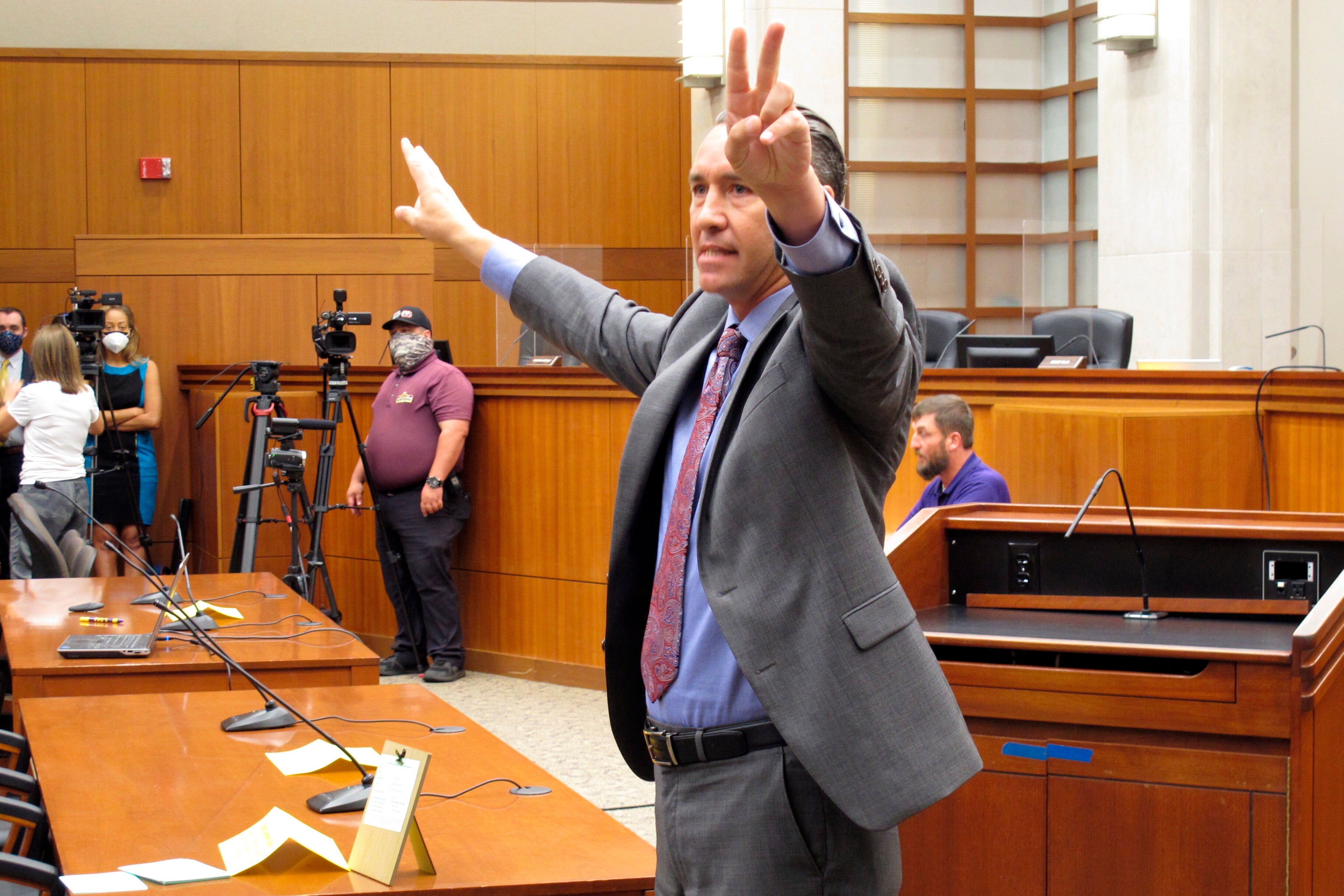Louisiana justices toss COVID-related charges against pastor
The Louisiana Supreme Court has thrown out charges against a pastor who disobeyed coronavirus pandemic restrictions on gatherings

Your support helps us to tell the story
From reproductive rights to climate change to Big Tech, The Independent is on the ground when the story is developing. Whether it's investigating the financials of Elon Musk's pro-Trump PAC or producing our latest documentary, 'The A Word', which shines a light on the American women fighting for reproductive rights, we know how important it is to parse out the facts from the messaging.
At such a critical moment in US history, we need reporters on the ground. Your donation allows us to keep sending journalists to speak to both sides of the story.
The Independent is trusted by Americans across the entire political spectrum. And unlike many other quality news outlets, we choose not to lock Americans out of our reporting and analysis with paywalls. We believe quality journalism should be available to everyone, paid for by those who can afford it.
Your support makes all the difference.The Louisiana Supreme Court threw out charges Friday against a pastor who violated restrictions on gatherings early in the coronavirus pandemic, ruling that the governor's executive orders violated freedom of religion.
“This is a tremendous win for religious civil liberties and it has vindicated us in our ... battle with the governor trying to close the churches down,” said the Rev. Tony Spell, who drew national attention when his congregation continued to meet in the spring of 2020, while much of the nation was in lockdown.
Gov. John Bel Edwards disagrees with but accepts the ruling, said spokesman Richard Carbo. “Each and every action Gov. Edwards took throughout the COVID pandemic was done with the goal of protecting the public’s health and saving lives,” Carbo said in a text message.
The Supreme Court majority found that numerous secular exemptions showed that religious groups weren't getting adequate consideration in mid- March 2020, when Edwards first limited gatherings to fewer than 50 people and, about a week later, tightened the limit to 10.
The record doesn't include any proof that “gatherings in secular venues like office buildings and airports created less risk of virus transmission than such interactions at gatherings in a church building,” Justice William J. Crain wrote.
There was too little evidence about anything to make a decision, Chief Justice John L. Weimer wrote in his dissent. For instance, Chief Justice John Weimer wrote that there was no evidence either way about whether any churches’ religious worship or practices were adversely affected when they held services outdoors or online.
Carbo said Edwards never closed houses of worship because he recognized their importance during the pandemic. “The Governor worked closely with faith leaders throughout the pandemic, and all were encouraged to hold services as safely as possible to protect their congregations,” he wrote.